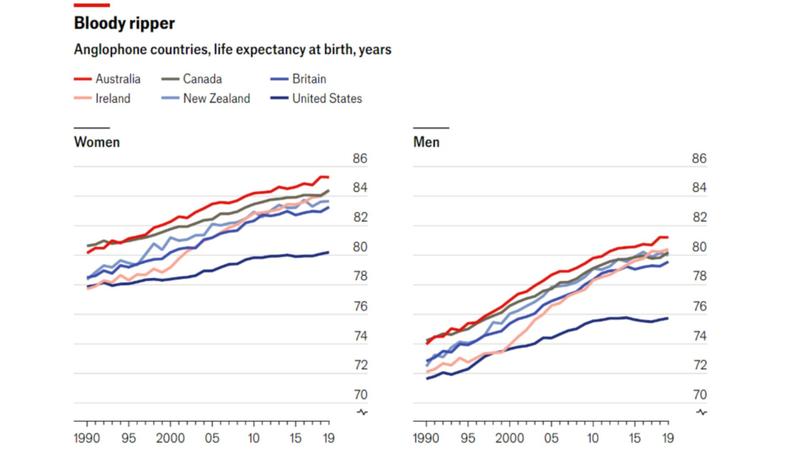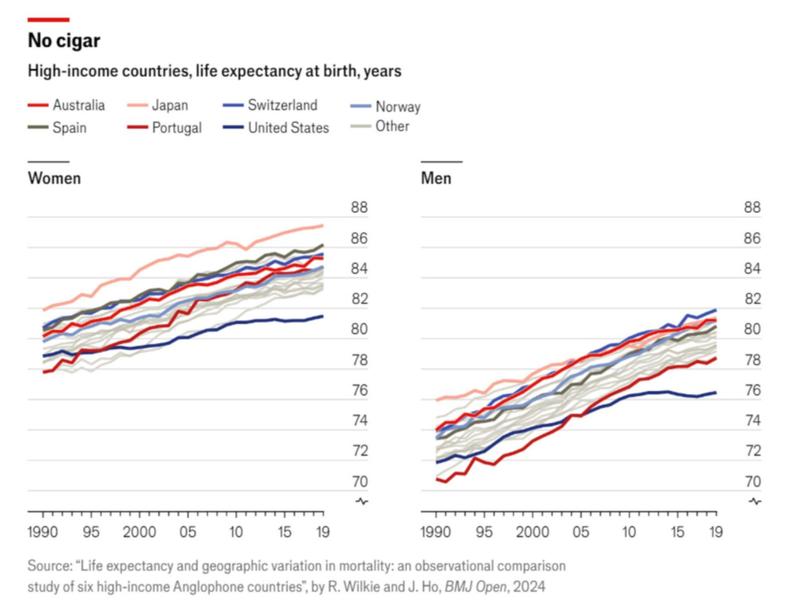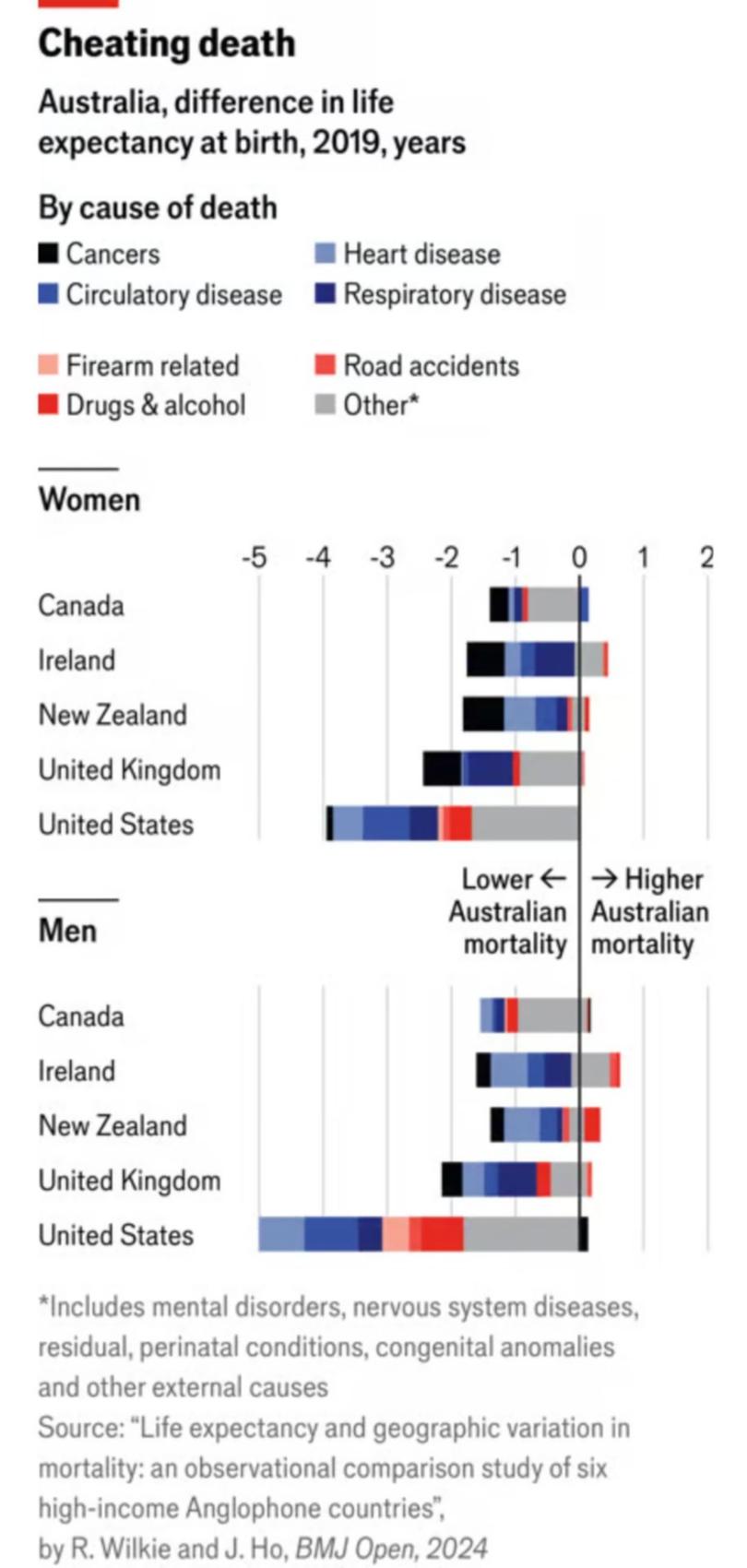THE ECONOMIST: Why do Australians live so long?
A new study has found Australians far outlive people in other English-speaking countries. So what is is that gives us those extra years?

The average Australian will live around two years longer than the average Briton. With Americans, the gap is four.
While the English-speaking world shares some similarities, Australians appear to outlive their Anglophone peers by a significant margin.
A paper published on August 13th in BMJ Open, a journal, found that since the early 1990s, Australian life expectancy has overtaken that of Canada, and is now higher than that of America, Britain, Ireland and New Zealand (see chart 1). What explains Australia’s growing lead among this group?
Sign up to The Nightly's newsletters.
Get the first look at the digital newspaper, curated daily stories and breaking headlines delivered to your inbox.
By continuing you agree to our Terms and Privacy Policy.
The study suggests that Australians are healthier than a lot of their peers.
Younger cohorts generally suffer fewer complications from pregnancies and births than other English-speaking countries and are less likely to die from drug overdoses.
Older age groups are also less likely to die from chronic diseases such as circulatory problems and heart disease.
Cancer mortality rates are lower in Australia than they are in all other Anglophone countries, except among American men aged over 65.
And Australians are also less likely to die in road accidents than other countries with high driving rates, such as America and New Zealand.
Taken together, these differences amount to 1-5 years of additional life expectancy (see chart 2).

The authors state that lower rates of tobacco use could explain some of these differences, as could Australia’s health care system.
Treatment is free via a universal health insurance scheme, but many Australians are also privately insured, taking pressure off the public system.
At 10.5 per cent the government spends less on health care as a share of GDP than Britain, America or Canada but its health-care system has considerably lower rates of avoidable deaths than than all of its English-speaking peers. Beyond the English-speaking world, however, Australia’s longevity is somewhat less impressive (see chart 3).

Compared with 14 other high-income countries it ranks fourth for men and sixth for women. Japan, Switzerland and Spain, all longtime longevity leaders, top the list. America has moved from a middling position in 1990 to dead last. Britain has fallen down the ranking after life expectancy stalled in the early 2010s.
The researchers found that “geographic inequality” was lower in Australia than other Anglophone countries. In other words, the chasm between rich and poor regions is narrower than, say, the north and south divide in Britain.
But that does not mean the risks of an early death are spread equally down under.
The lives of Aboriginal Australians are more than eight years shorter than the average. And for some causes of death, such as suicide, things are actually getting worse for the indigenous population.
Since Aboriginal people make up less than 4 per cent of Australia’s population, their poor health outcomes make no perceptible difference to the national average. But the chance of a long and healthy Australian life is not universal.
Originally published on The Nightly
